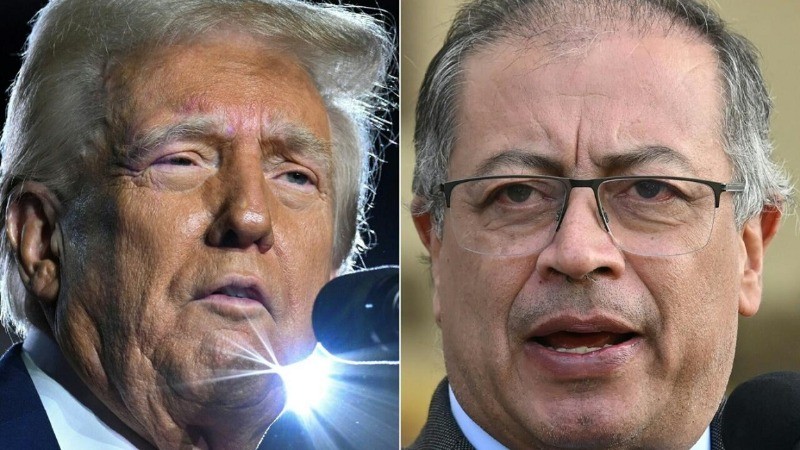
Former US President Donald Trump announced 25 per cent tariffs on goods from Colombia after the Colombian government barred two US military planes carrying deported migrants from landing in the country. Trump stated that the tariffs would take effect immediately and warned that they would increase to 50per cent within a week.
Colombian President Gustavo Petro responded by declaring a matching 25 per cent tariff on US goods. Earlier, Petro had refused the US military planes’ entry, explaining that migrants should be returned with dignity on civilian flights, not treated like criminals.
According to US officials, the blocked flights were set to transport migrants deported from San Diego, but complications disrupted the plan. Trump called the move a violation of legal obligations and announced additional measures, including travel bans, visa cancellations for Colombian officials and their supporters, and stricter border checks for Colombian nationals and goods.
Petro countered on social media, expressing defiance and pride in Colombia’s heritage. He also offered his presidential plane for the respectful return of deportees. Additionally, Petro claimed over 15,000 Americans were living in Colombia illegally, a figure yet to be independently verified.
The trade conflict threatens economic ties, with the US importing USD2 billion worth of coffee and other goods like bananas and avocados from Colombia annually. Tariffs could raise costs for American consumers and harm Colombian producers by reducing their market access.
The tension has deepened the already strained relationship between Trump and Petro, who have clashed over migration policies. Petro accused Trump of arrogance and criticized his treatment of Colombians, vowing to stand firm against economic pressure.
Meanwhile, Trump’s administration continues to focus on stricter immigration enforcement, including mass deportations and expanded powers for ICE. Vice President JD Vance expressed support for stronger immigration policies, while officials emphasized the importance of securing the US border.
This feud has added challenges to the US-Colombia partnership, especially in managing migration from South America, as criminal networks often facilitate northward flows of migrants through Colombia.
Last week, Donald Trump issued an executive order allowing the U.S. military to help secure the country’s southern border. The Department of Defense announced that it would use military planes to deport individuals who are currently in U.S. custody near the border.